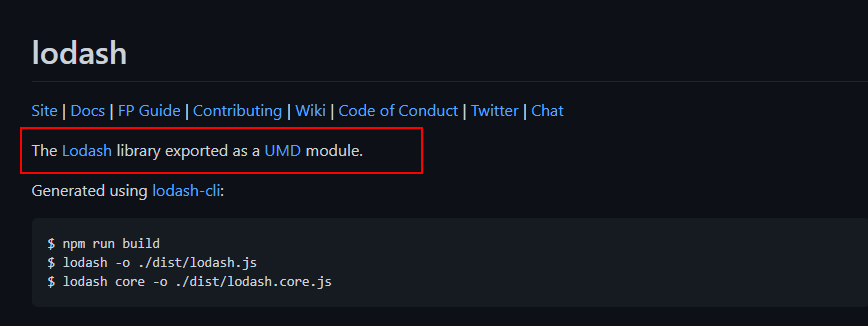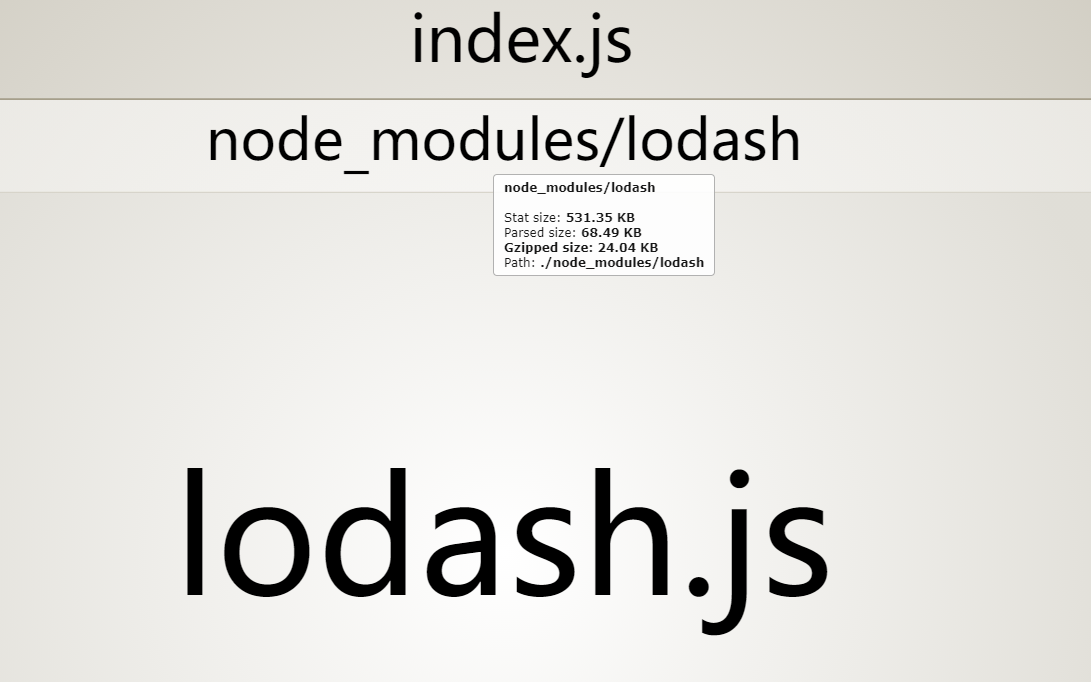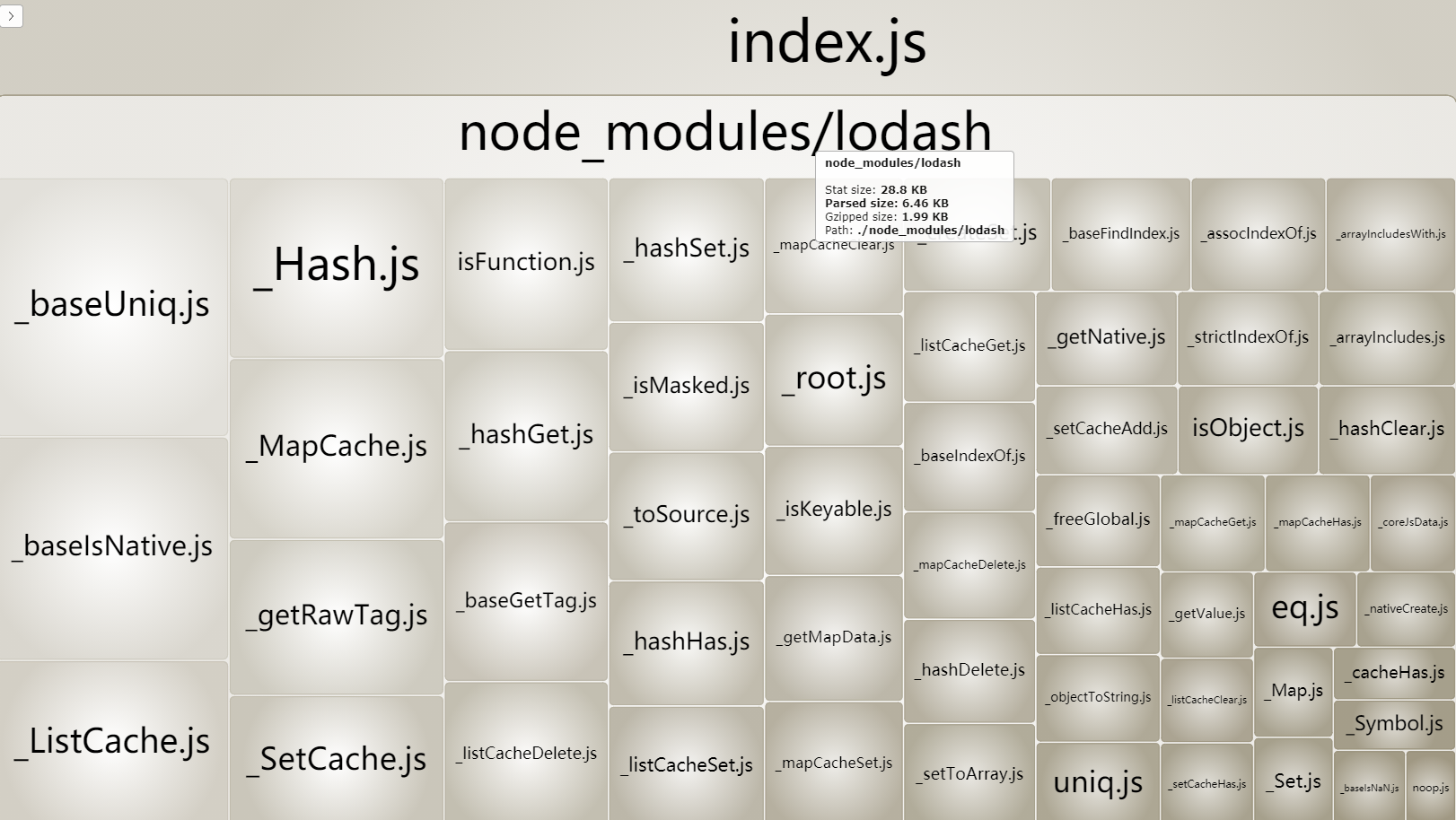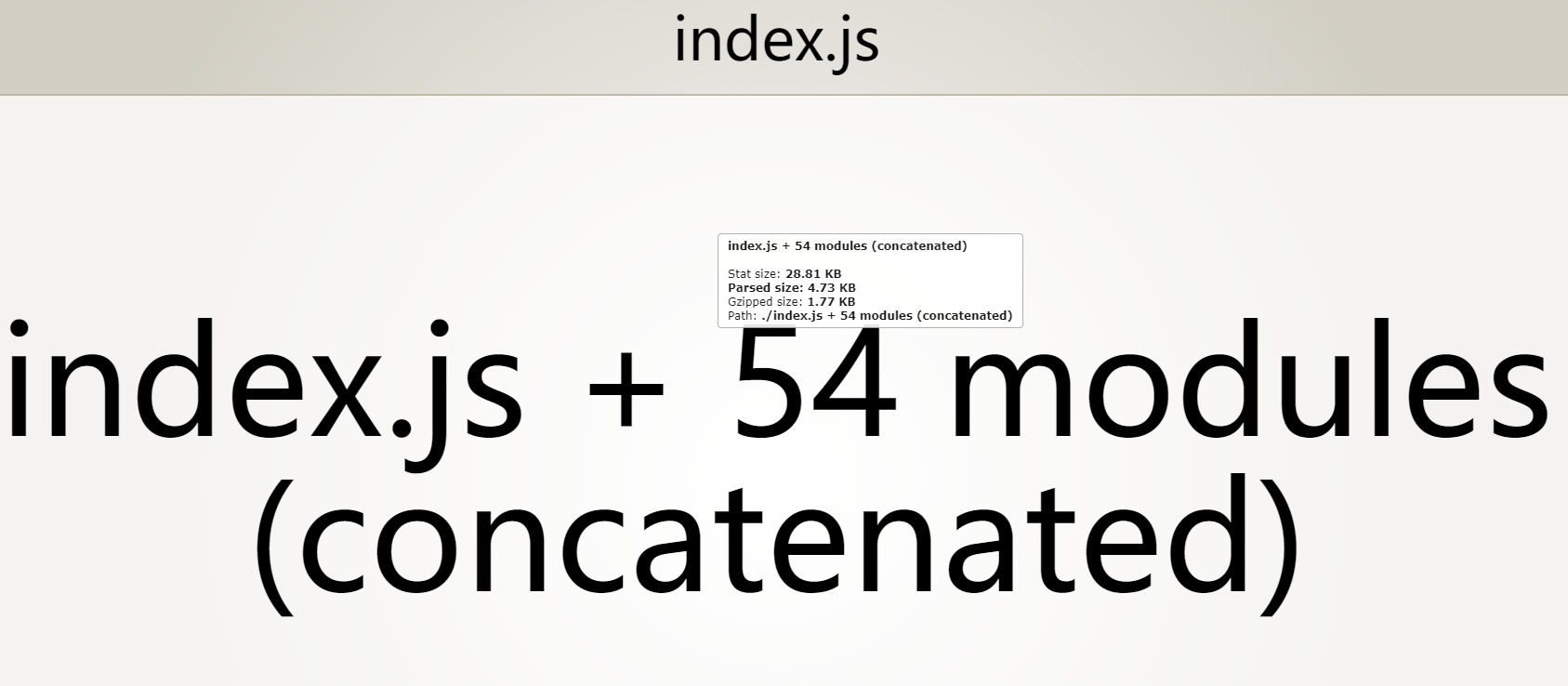优化 lodash 打包
优化 lodash 打包
lodash 为什么不能被 Tree Shaking
Tree Shaking 依赖 ES Modules 语法;lodash根本不支持 ES Modules。

lodash 这种写法有用吗
我所见的最多的就是lodash下面这种写法
import { uniq } from 'lodash';
下面来测试一下这种写法在使用webpack构建的时候有没有按需打包的效果。
新建一个项目,结构如下:
.
├─ index.js
├─ package.json
├─ webpack.config.js
webpack的配置也很简单,只使用了webpack-bundle-analyzer这个打包分析工具,方便查看最终生成的代码结构,配置如下:
const path = require('path');
const BundleAnalyzerPlugin = require('webpack-bundle-analyzer')
.BundleAnalyzerPlugin;
module.exports = function() {
return {
entry: path.resolve(__dirname, 'index.js'),
mode: 'production',
output: {
filename: 'index.js',
},
plugins: [
new BundleAnalyzerPlugin({
analyzerMode: 'disabled',
openAnalyzer: false,
generateStatsFile: true,
statsFilename: 'stats.json',
}),
],
};
};
index.js里我们使用一个lodash的函数,代码如下:
import { uniq } from 'lodash';
function test() {
return uniq([1, 2, 2, 2, 3, 4, 5, 5, 6]);
}
test();
执行webpack以后获得打包的分析依赖图如下所示,可以清楚地看到lodash被全部打包进来了

如何优化 lodash 的打包
优化lodash的打包结果,可以从以下方面进行
修改 lodash 的使用语法
import { uniq } from 'lodash';
// 改为一下导入方式
import uniq from 'lodash/uniq';
修改以后,打包体积立马就小了下来 😂

使用 lodash-es
lodash-es是lodash按照 ES Modules 暴露入口的 package,可以被webpack的 Tree Shaking 给优化。
yarn add lodash-es
import { uniq } from 'lodash-es';
function test() {
return uniq([1, 2, 2, 2, 3, 4, 5, 5, 6]);
}
test();
打包以后依赖体积如下
